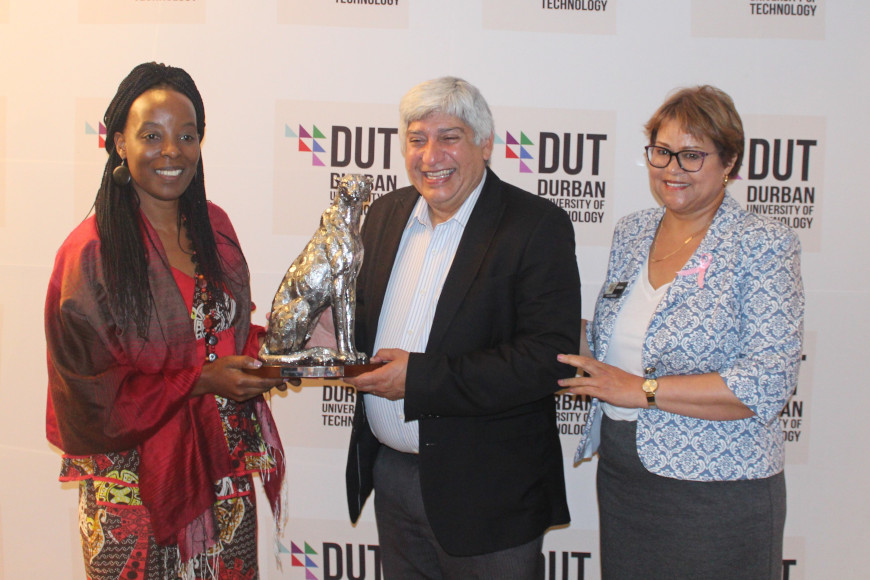Former Durban University of Technology’s (DUT) Vice-Chancellor and Principal Professor Ahmed Bawa led an open lecture on the 2020 Open Access Model under the title: A Journey Towards Open Access to Scholarly Journals: towards transformative agreements, which was held at the DUT Hotel School and Conference, Ritson Campus on Monday, 21 October 2019.
Open Access refers to the practice of making peer-reviewed scholarly research and literature freely available online to anyone interested in reading it. Open access content is open to all, with no access fees.
In his opening statement, Chief Executive Officer of Universities of South Africa (USAf) and Theoretical Physicist Prof Bawa highlighted the human rights injustices around open access, where he touched on unequal access to scholarly journals and information database, looking at the growing unaffordability due to escalation of costs, foreign exchange instability and industry models.
He also shared an overview of the OA 2020 Model, saying that while supporting the development of more radical open access strategies, the model aims to transform the core of today’s scholarly journals from subscription to open access and follow the transformation process by converting resources currently spent on journal subscriptions, into funds to support open access.
“When looking at challenges surrounding open access, we(universities) have to think of it as a national problem, parties should all engage towards achieving a rapid and efficient transition for the benefit of scholarships and the society at large and it is very important for us to be transparent,” he said.
During his lecture, he spoke on useful transformative agreements that shift from pay to read to pay to publish, saying that this transformation means open access to everyone.
“We should prioritise getting as many young people into the education sector, open access contributes towards ensuring that young people are coming through the system and producing high quality research,” said Prof Bawa.
He further touched on financial data needed questions that institutions should consider, starting with the sum spent on subscriptions, how much money is being paid for accredited journals which are not on the database, and how much is paid for article-processing charges (APCs) in each institution.
In his final remarks, he spoke on steps that could be implemented in the development of open access. He said there is a vital need to develop timelines for key milestones in relation to negotiations with publishers, determining the financial parameters for negotiations clarifying roles of institutions, as well as enlisting and training institutional champions from faculties, libraries and research.
He added that the circle must be made bigger by including research institutions, hospitals, private enterprise and the rest of Africa. “We want to see this as a national project, not an individual University project. Science Councils, universities and government have all collaborated on this project,” he said.
Additionally, there were also presentations given by DUT’s Research and Postgraduate Support’s Dr Kunle Oparinde, BTech student Sboniso Ngcobo and Media Language and Communication lecturer Tasneem Seedat, who all presented on their conducted research and implementation towards open access.
Pictured: Chief Executive Officer of Universities of South Africa (USAf) Professor Ahmed Bawa, Deputy Vice Chancellor: Research, Innovation and Engagement Professor Sibusiso Moyo and Library Directorate Lucille Webster, at the event.
Nomfundo Ngcobo


